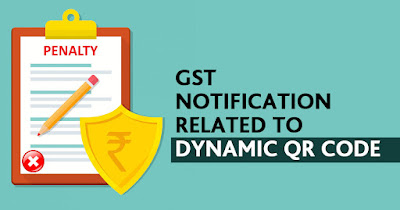Finally, the penalty for “non-complying of taking over/capturing dynamic QR code in GST Invoice” has been waived by the Central Board of Indirect Taxes and Customs (CBIC). The target date /last date has been extended from December 2020 to June 30, 2021( i.e. target date/deadline of compliance to July 1, 2021).
The board has proposed to alter the notification of the Ministry of Finance (Department of Revenue) dated 29th November 2020 and bearing number 89/2020 – Central Tax.
Read also: Info GST QRMP (Qtly Return Filing & Monthly Payment) Scheme
In the first paragraph of the aforesaid notification, amendments shall be made. The phrase “31st day of March” shall be substituted by “30th day of June” and “1st day of April”, shall be substituted by “1st day of July”.


Comments
Post a Comment